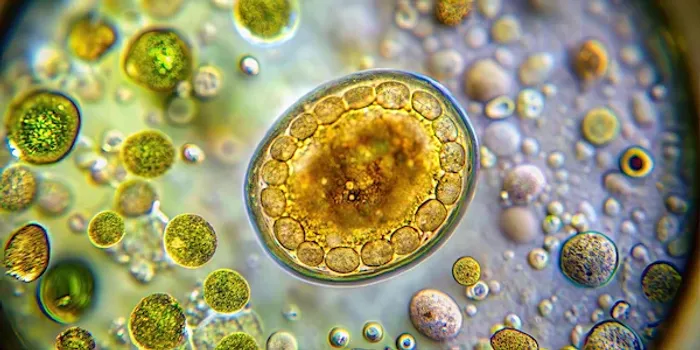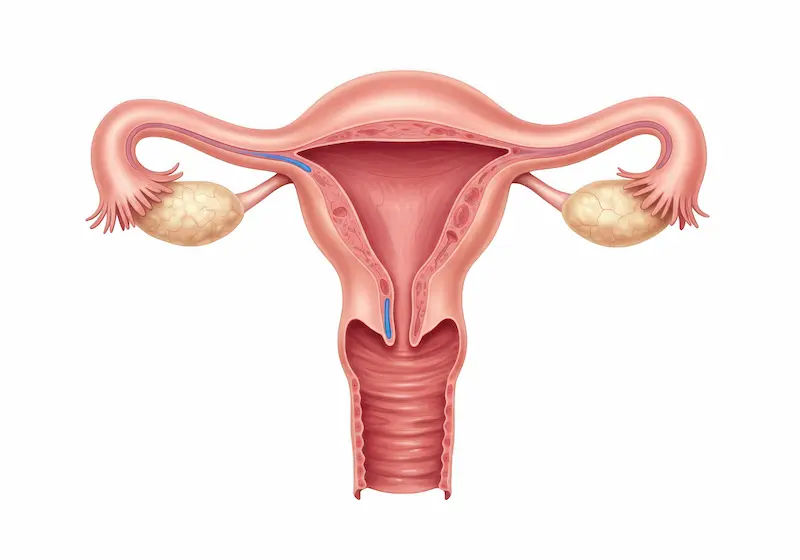Pus Cells in Urine and Pyuria Overview
Explore the causes, symptoms, and treatment options for pus cells in urine and pyuria. Understand what they indicate, how they’re diagnosed, and effective ways to manage pyuria.

Written by Dr. Rohinipriyanka Pondugula
Reviewed by Dr. J T Hema Pratima MBBS, Fellowship in Diabetes Mellitus
Last updated on 13th Jan, 2026

Introduction
If you’ve ever had a urine test and heard the term "pus cells in urine" or "pyuria," you might be concerned about what it means. Don’t worry; this article will explain everything in simple terms, including what causes it, how it affects your health, and what you can do about it.
What Are Pus Cells in Urine (Pyuria)?
Pus cells, also known as white blood cells (WBCs), are part of your body’s immune system and help fight infections. When these cells appear in your urine in higher-than-normal amounts, it’s called pyuria.
A small number of WBCs in urine is normal, but if the count is high, it usually indicates an infection or inflammation in the urinary tract or kidneys.
Common Causes of Pus Cells in Urine
Several conditions can lead to pyuria, including:
1. Urinary Tract Infection (UTI) – The most common cause, especially in women. Bacteria enter the urinary tract, leading to infection.
2. Kidney Infections (Pyelonephritis) – A more severe UTI that spreads to the kidneys.
3. Sexually Transmitted Infections (STIs) – Such as gonorrhea or chlamydia.
4. Bladder Inflammation (Cystitis) – Often due to infection or irritation.
5. Kidney Stones – Can cause irritation and secondary infections.
6. Prostatitis (in men) – Inflammation or infection of the prostate gland.
7. Pregnancy – Hormonal changes can increase UTI risk.
8. Autoimmune Diseases – Like lupus, which can cause kidney inflammation.
Symptoms of Pyuria
If you have pus cells in your urine, you may experience:
Pain or burning sensation while urinating
Frequent urge to urinate
Cloudy or foul-smelling urine
Lower abdominal or back pain
Fever or chills (if infection spreads to kidneys)
Blood in urine (in severe cases)
Sometimes, pyuria may not cause noticeable symptoms (asymptomatic pyuria), especially in older adults.
How Is Pyuria Diagnosed?
Doctors usually diagnose pyuria through:
Urine Routine Test (Urinalysis) – Checks for WBCs, bacteria, and other abnormalities.
Urine Culture – Identifies the specific bacteria causing infection.
Blood Tests – If kidney infection is suspected.
Imaging Tests (Ultrasound/CT Scan) – If kidney stones or structural issues are suspected.
If you experience symptoms, it’s best to get tested early to prevent complications.
Your Health Assessed
How to Manage and Treat Pyuria
Some effective ways to handle pyuria through medical treatments, at-home care, and healthy lifestyle habits include:
1. Medical Treatment
Antibiotics – If a bacterial infection is confirmed, your doctor will prescribe antibiotics.
Pain Relievers – Medications like paracetamol can help with discomfort.
Treatment for Underlying Conditions – If pyuria is due to kidney stones or STIs, additional treatments may be needed.
2. Lifestyle and Home Remedies
Stay Hydrated – Drinking plenty of water helps flush out bacteria.
Maintain Good Hygiene – Wipe from front to back after using the toilet to prevent bacterial spread.
Urinate Frequently – Don’t hold urine for too long.
Avoid Irritants – Reduce caffeine, alcohol, and spicy foods that can irritate the bladder.
Cranberry Juice – May help prevent UTIs (though not a cure).
3. When to See a Doctor
If symptoms persist after 2-3 days of home care.
If you have fever, vomiting, or severe back pain (possible kidney infection).
If you notice blood in urine.
Preventing Pus Cells in Urine
Here are some effective ways to help prevent pus cells in urine:
Drink enough water daily (at least 8-10 glasses).
Practice safe sex to reduce STI risks.
Avoid harsh soaps or douches that can disrupt urinary health.
Wear breathable cotton underwear to prevent bacterial growth.
When to Get Tested?
If you suspect a UTI or have recurring infections, a simple urine test can help detect pus cells early.
Your Health Assessed
Final Thoughts
Pus cells in urine are usually a sign of infection or inflammation, but with timely treatment, most cases resolve quickly. If you notice symptoms, don’t ignore them; early care can prevent complications.
Consult a Top Urologist for the best advice
Consult a Top Urologist for the best advice

Dr. Moin Mohammed Bavakatti
Urologist
13 Years • MBBS, MS (General Surgery), Mch (Urology), DNB (Urology), Diploma in Minimal Access Surgery, Fellow of Internal College of Robotic Surgeons), Vinci Surgical system, Fellow in Endocrinology, Clinical and Research fellow in Laparoscopic Urology, Laser Endourology & Laparoscopic & Robotic Urology, Fellowship in 3D laparoscopic Urology
Bengaluru
Dr Moin Mohammed Bhavikatti Clinic, Bengaluru
(150+ Patients)
Dr. J Chaithanya
Urologist
6 Years • MBBS MS GENERAL SURGERY MCH UROLOGY
Bengaluru
Apollo Medical Center, Marathahalli, Bengaluru

Dr. Yogesh Taneja
Urologist
15 Years • MBBS , MS (General surgery), DNB (Genito Urinary Surgery)
Gurugram
Procyon Health, Gurugram

Dr. Kunal Kumar Mehar
Urologist
10 Years • Mbbs, Ms, Mch
Bengaluru
Apollo Medical Center, Marathahalli, Bengaluru
Dr. Mohammed Rehan Khan
Urologist
8 Years • MBBS, MS (General Surgery), Mch (Urology)
Barasat
Diab-Eat-Ease, Barasat





